Bollywood Odyssey: The Singing Taxman’s Journey Into Film Music, Written by retired IRS (Indian Revenue Service) officer Ajay Mankotia. , Photo Credit: Special Arrangement
Bollywood music, although vital to a film’s success and legacy, has always existed in a standalone capacity. After all, there are many bad or mediocre Bollywood movies that have sublime music composed by the masters. It is in the service of this unique world that retired IRS (Indian Revenue Service) officer Ajay Mankotia has written his recently published book Bollywood Odyssey: The Singing Taxman’s Journey Into Film Music (Readomania). The book is a collection of profiles of iconic singers, composers and lyricists who have composed Bollywood songs ranging from the Mangeshkar sisters to Madan Mohan, Khayyam, RD and SD Burman and many more, which Ajay has done. A great job chronicling their highs and lows.
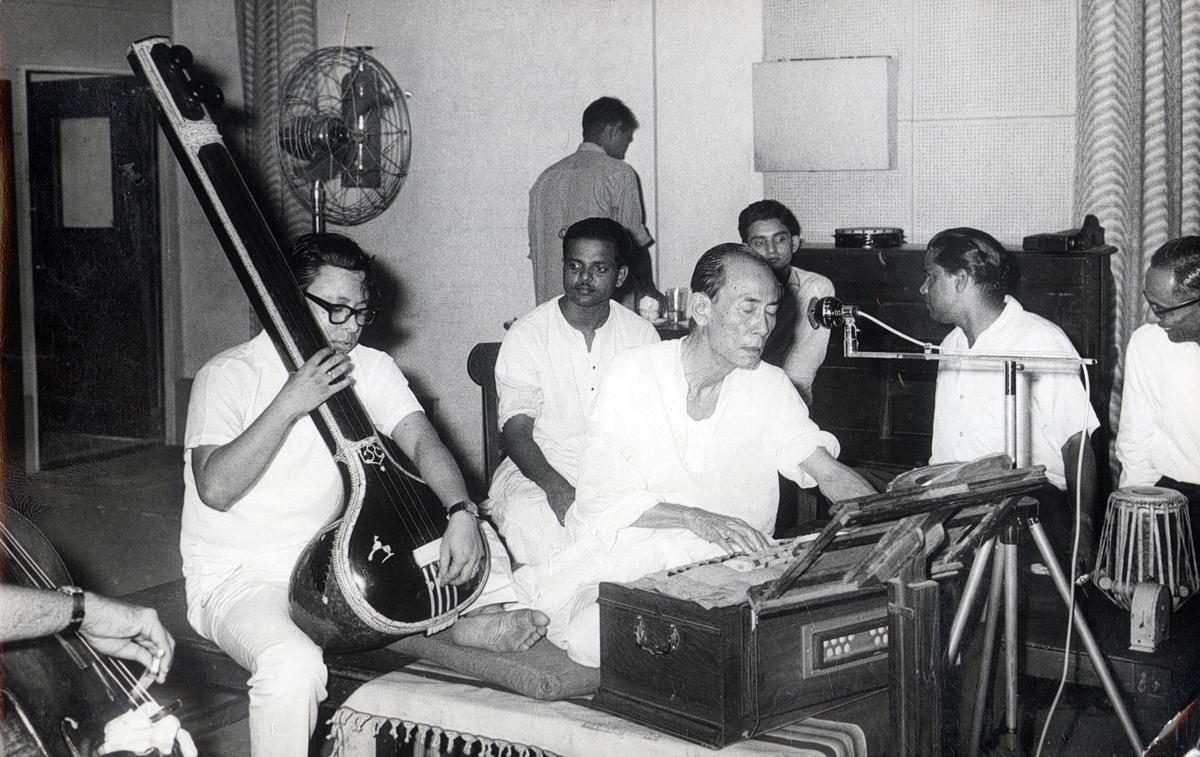
Music director SD Burman during the recording of the song at Bombay HMV’s studio. His son Rahul Dev Burman (RD Burman) is playing the sitar. , Photo Credit: The Hindu Archives
Ajay has been crazy about Bollywood music since his youth. In the 1950s, both his mother Usha and his late maternal uncle Satish worked at All India Radio; Formerly as a singer and later as a composer. Thanks to this background and the passion he has maintained throughout his life, Ajay is a veritable encyclopedia of Bollywood, as I discovered during a telephonic interview.
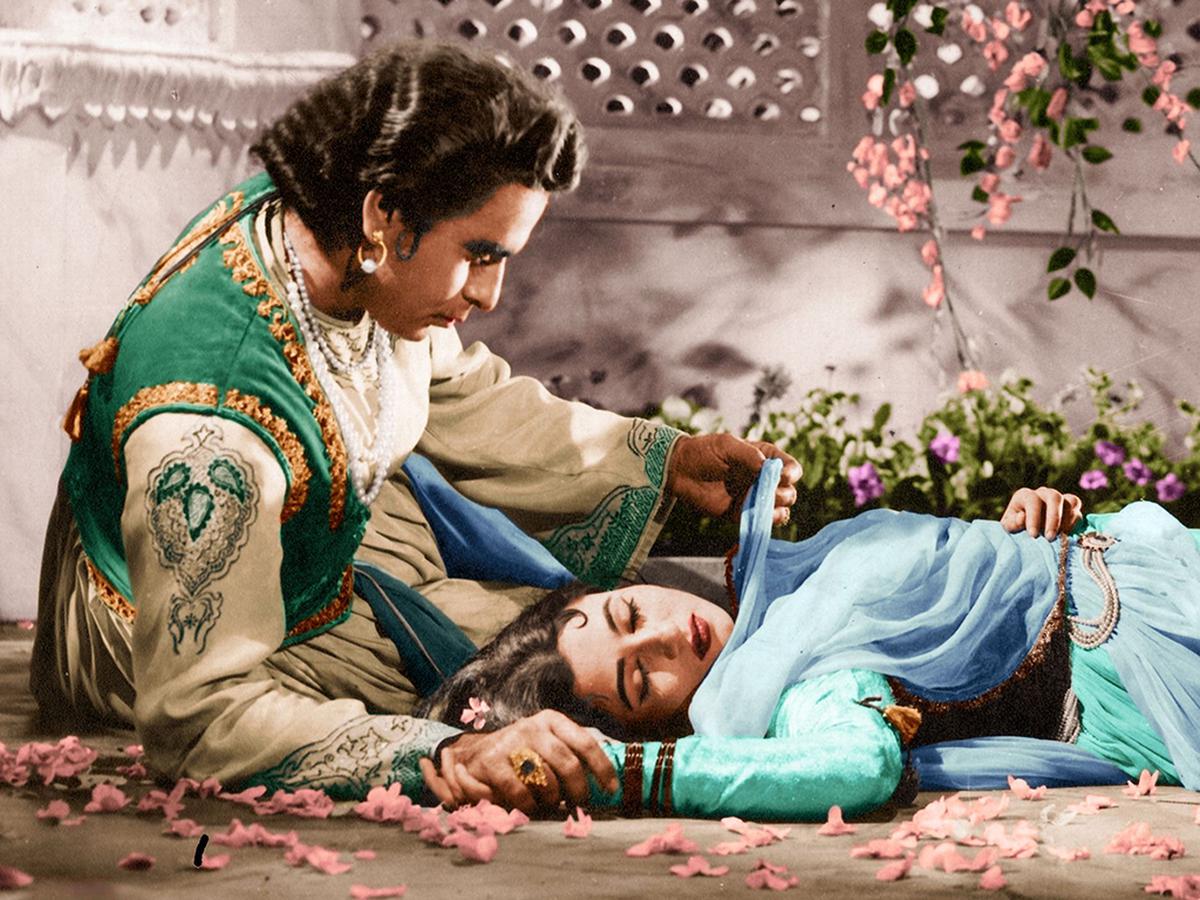
The song ‘Prem Jogan Ban Ke’ featuring Dilip Kumar and Madhubala from the film Mughal-e-Azam, , Photo Credit: The Hindu Archives
Ajay said, “The songs we had in Bollywood in the 1950s, 1960s and 1970s were written by poets.” “He had the necessary sensibility, the sensibility needed for such a job. He was aware of the struggles of the underprivileged. He also had the necessary vocabulary and skills to express romantic feelings. It was very different from the lyrics we listen today, which are quite forgettable in comparison.
recurring theme
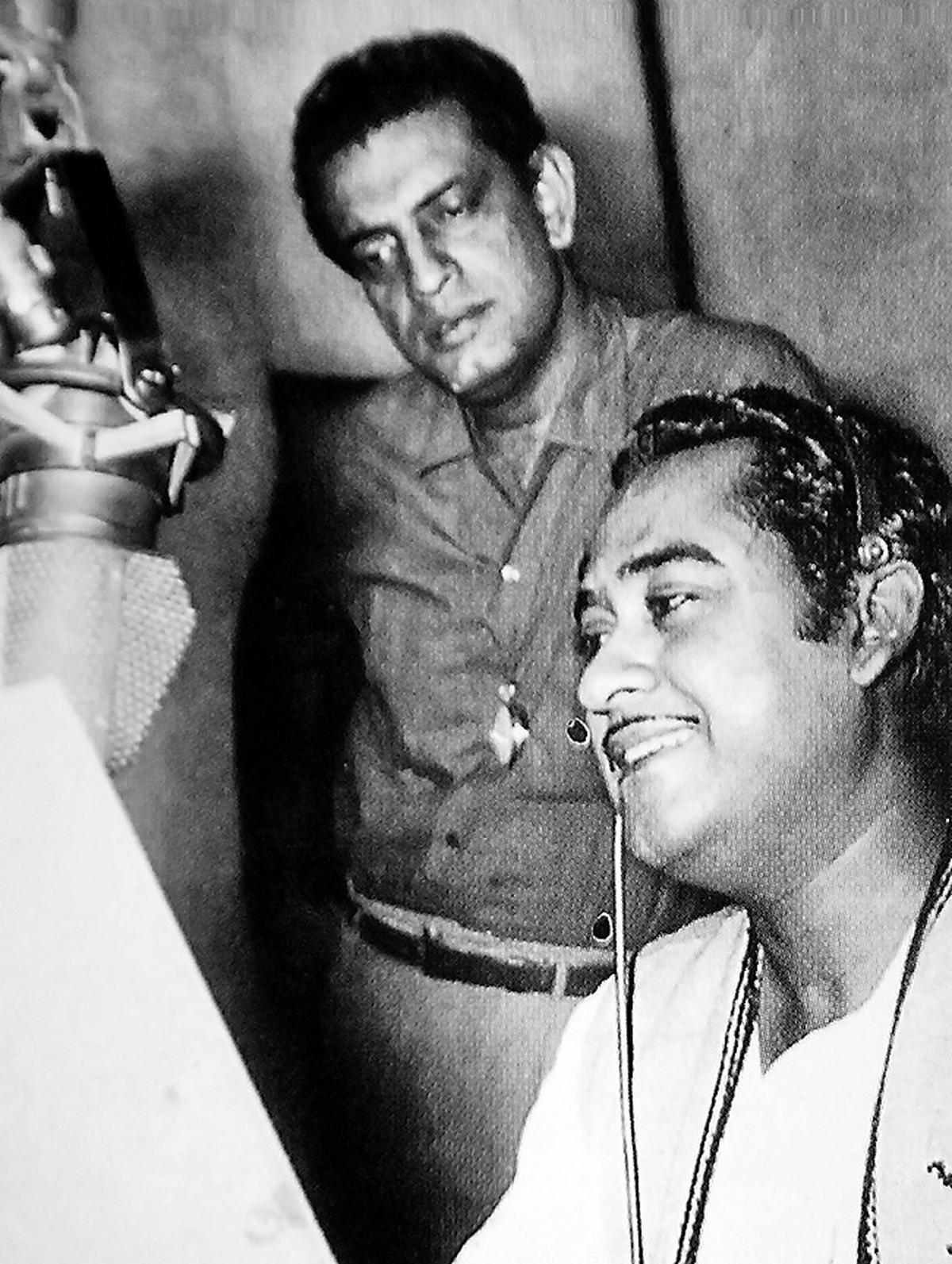
Ray and Kishore Kumar. , Photo Credit: The Hindu Archives
This tension between art and commerce is one of the book’s recurring themes – and, one could argue, one of the key narratives of Bollywood as a whole. Like an essay on composer Jaidev, Ajay describes one of his songs in a way that makes it clear that commercial concerns were last on Jaidev’s mind.
Read also: music without borders
“It was not a commercial concoction; It didn’t earn instant acclaim. It was not a polite fun and dance number. It was serious, complex, layered; Inspired by Hindustani classical and folk music. It weaved a rich tapestry of musical and lyrical nuance. There was a subtle variation of tempo and mood. It was hard to appreciate on first listen; But it grew on you, wrapping you in its complexity: raga-based structure, leisurely pacing, soothing orchestration, sensitive lyrics and myriad musical variations.
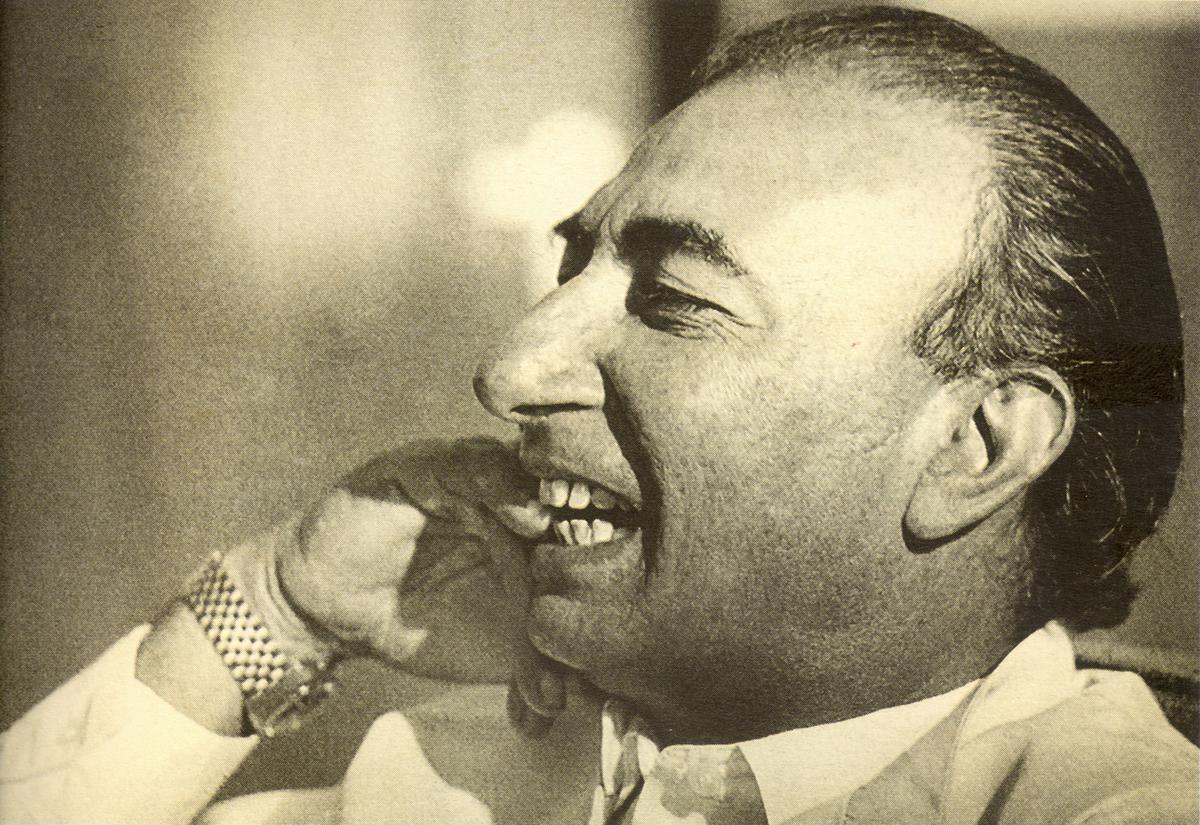
Sahir Ludhianvi. , Photo Credit: The Hindu Archives
Similarly, Ajay Mankotia is also keenly aware of the political ramifications of the artists being featured here. For example, here is his assessment of the great Sahir Ludhianvi. “If there was bitterness in his poems and songs, it was because he was overwhelmed by the circumstances around him. This rare sensitivity to the plight of the oppressed classes was the cornerstone of his poetry. formally spoke of the structures of exploitation and their agents such as capitalists, usurers, priests, etc. While he criticized the nation, and was cynical towards politics, he never lost faith in the collective power of the people.
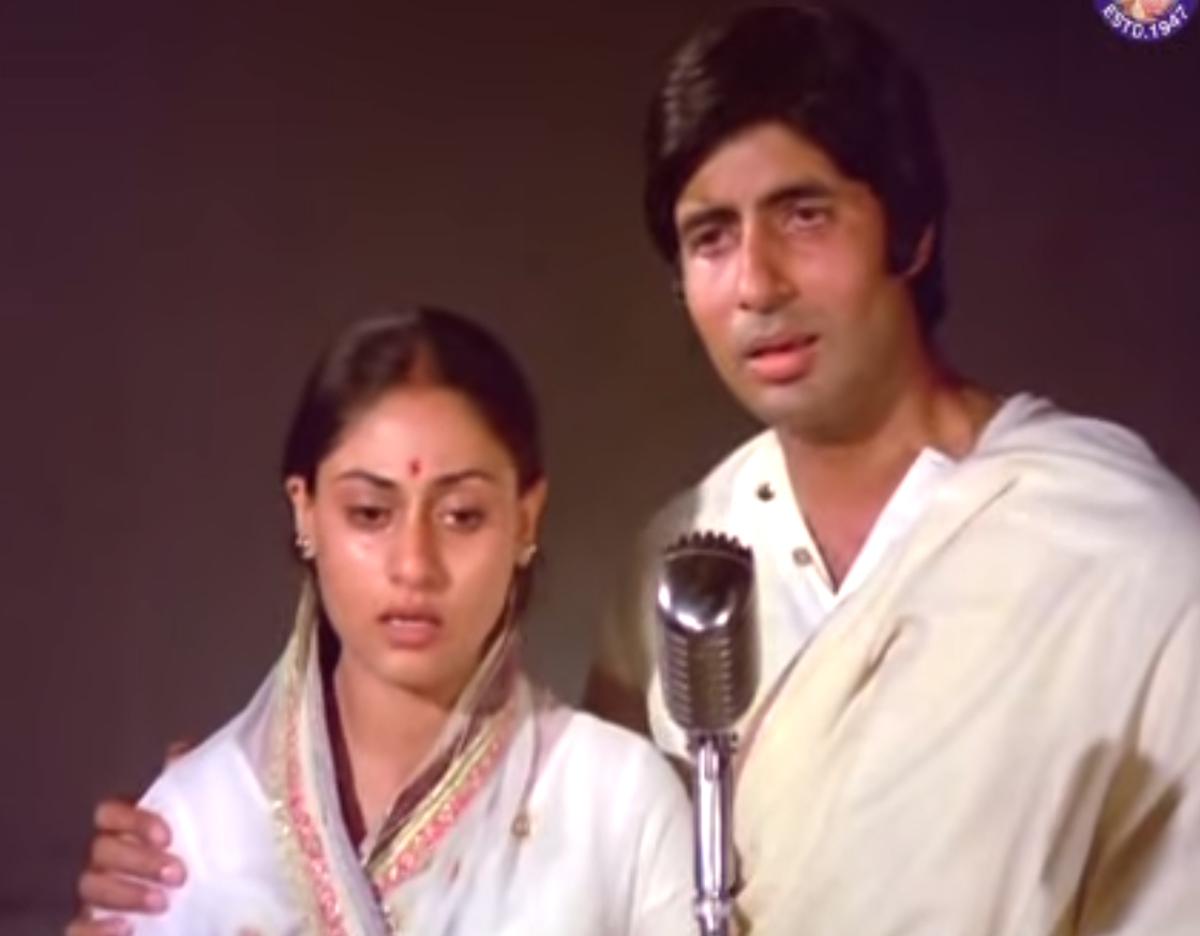
Amitabh Bachchan and Jaya Bhaduri pride, , Photo Credit: The Hindu Archives
Bollywood Odyssey Bollywood understands the multi-modal role of the composer very well. In so many cases, the composer’s duty is almost as important as that of the film’s director. can we imagine the movies Rock Star Or pride without his songs? We can’t, because the music and the emotions in it are part of the skeletal structure of the film. Because of this inescapable truth, the composer’s work becomes largely collaborative, requiring a certain creative synergy from all parties involved. As Ajay said during our interview, “There are a lot of creative and practical decisions made during this process. From what singers to use for which song, how long a song should be compared to the before and after scenes, Which ragas or symphonies are best suited to express mourning, love or repentance or patriotism… The possibilities are endless and the best musicians know when and how to use a particular instrument.
RD Burman with playback singer Mohammed Rafi and actor Dev Anand during a rehearsal session. , Photo Credit: The Hindu Archives
Bollywood Odyssey Highly recommended if you are a Bollywood newbie. It will give you a bird’s eye view of the classics and educate you on the fundamentals of Bollywood music. And if you are a hardcore Bollywood lover, pick up the book and you might learn something new.